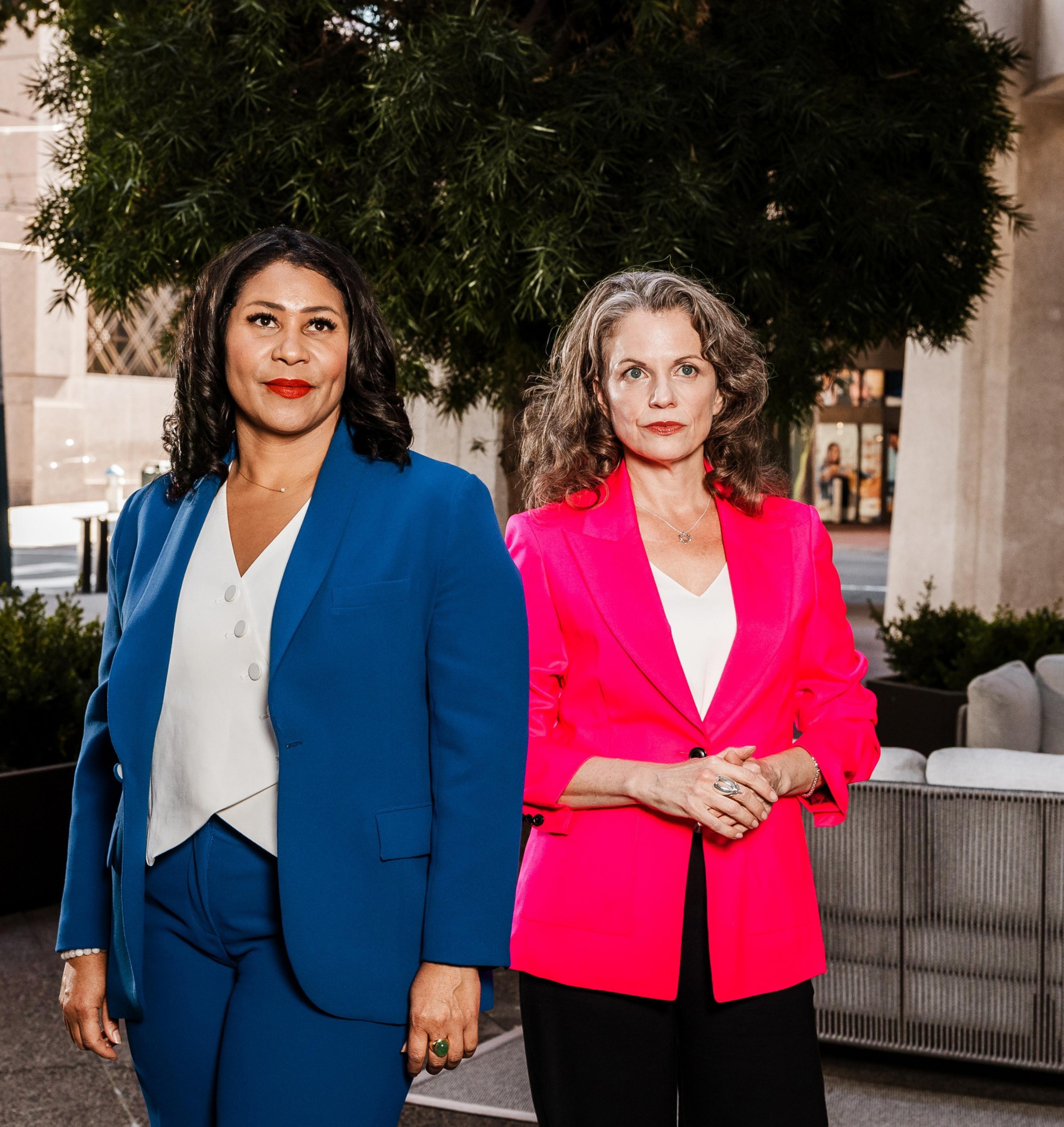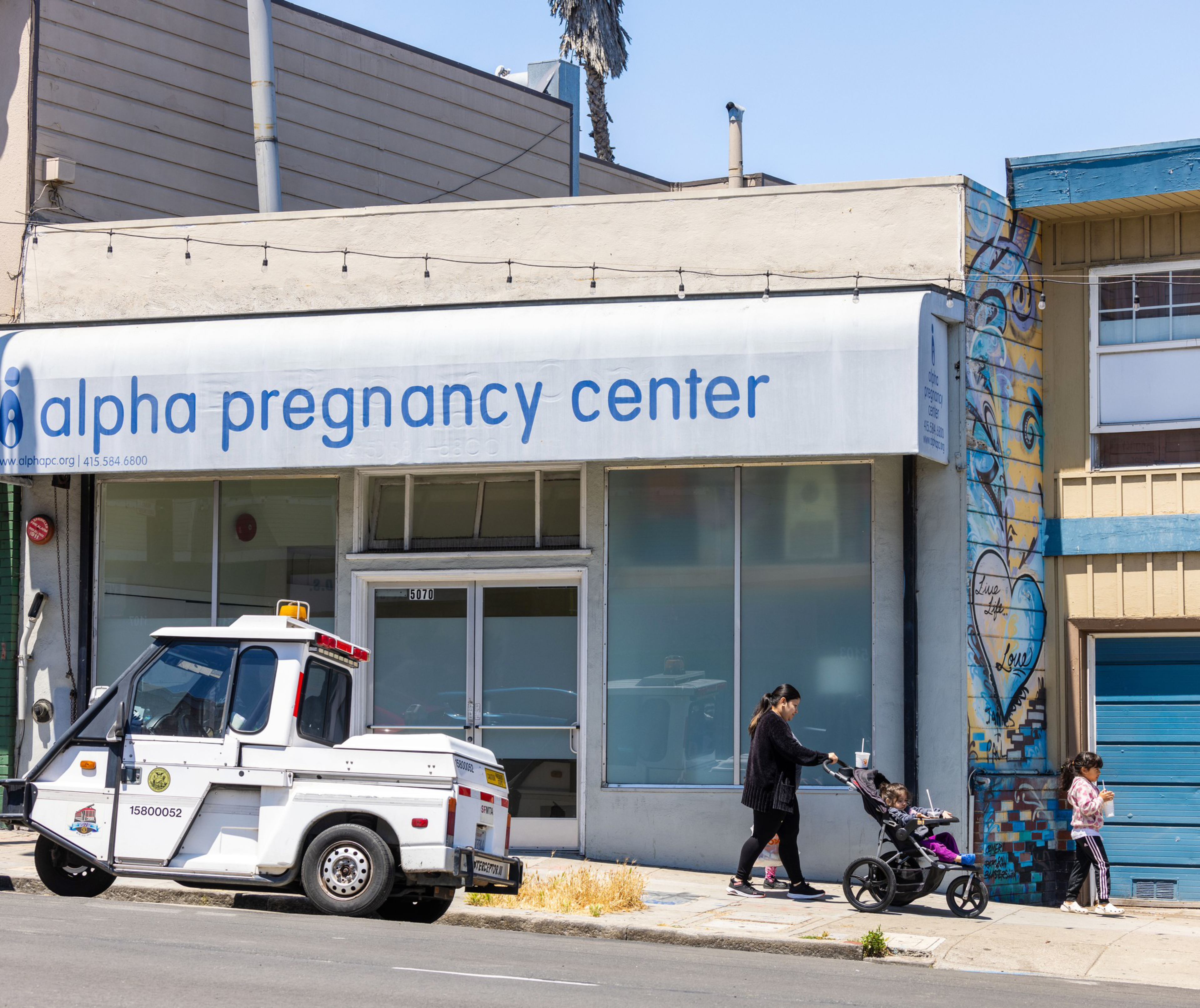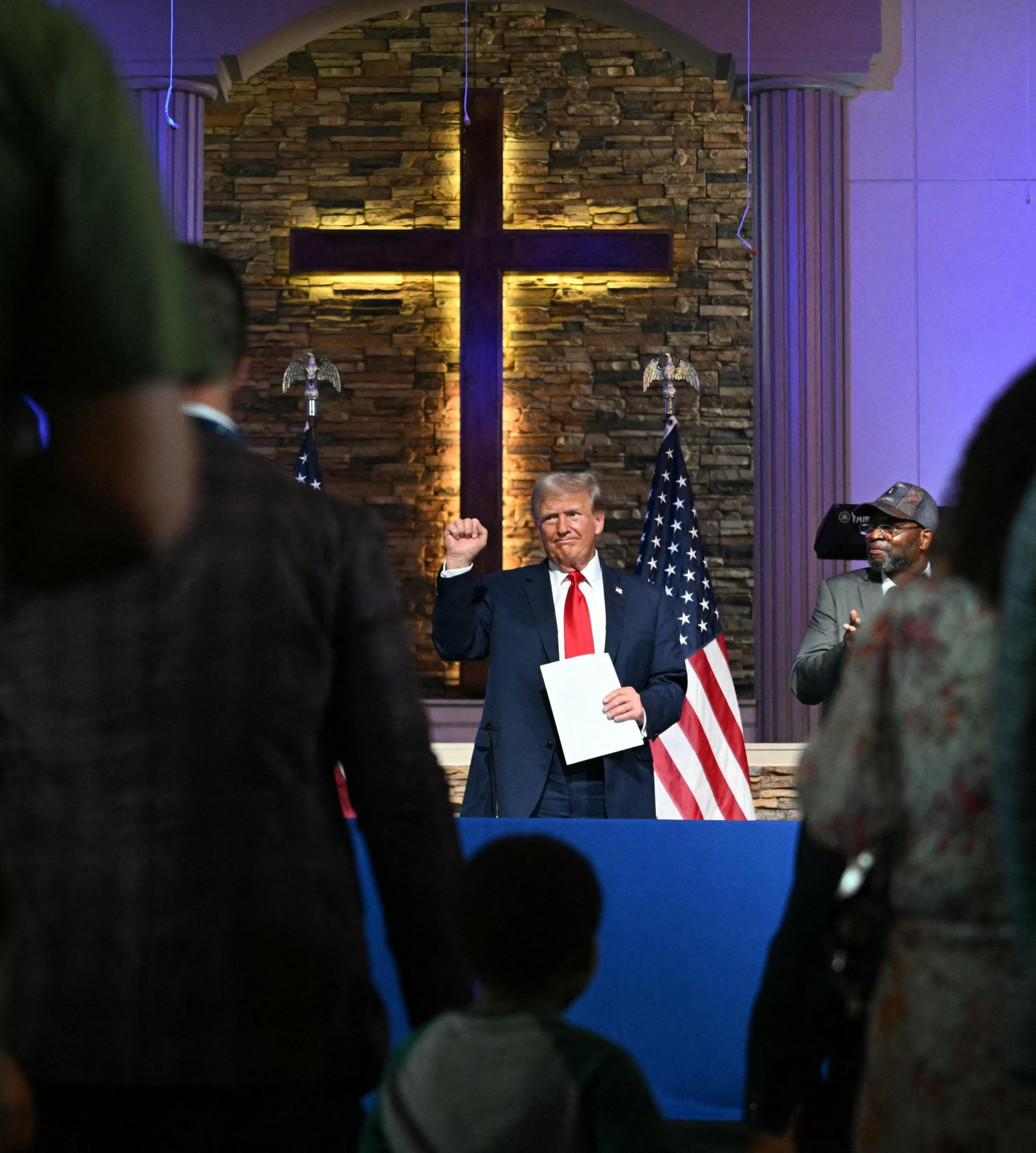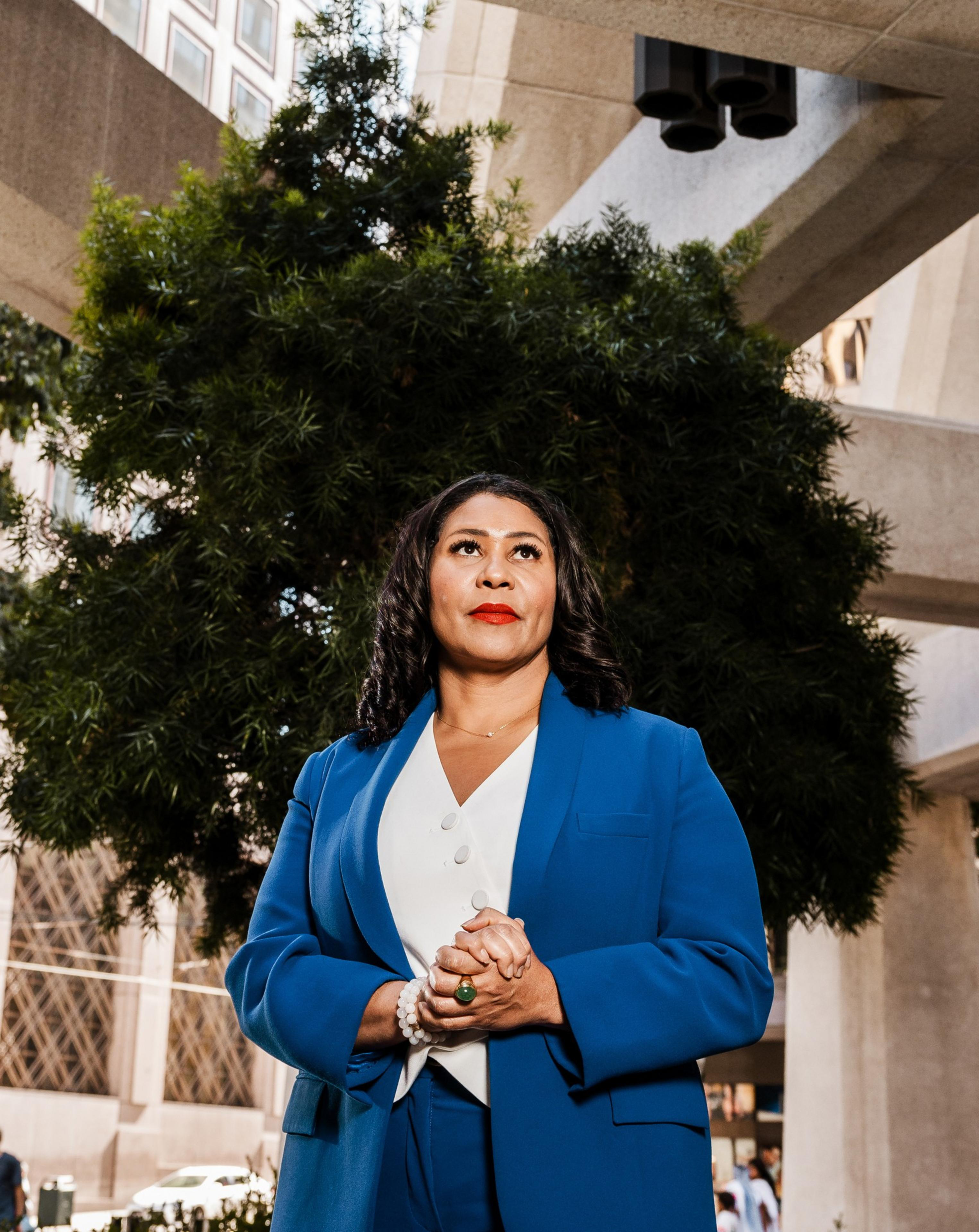Gearing up for a second Trump administration, San Francisco is looking to extend abortion access—and in doing so, it’s picking a fight with the Catholic Church.
In November, San Francisco voters will consider the Reproductive Freedom Act, a measure placed on the ballot by Mayor London Breed that aims to shore up protections for abortion rights. The measure touches on financing, data sharing and even zoning laws for health clinics.
It would also require signage about abortion access and emergency contraception to be posted across the city—and specifically outside religiously affiliated crisis pregnancy centers, of which there are two in San Francisco.
Heidi Sieck, an advocate for pro-choice policies who currently serves as the Breed campaign’s finance director, said the ballot measure is necessary because of a possible Trump presidency and conservative plans to implement Project 2025, a blueprint (opens in new tab) for a Republican presidential takeover organized by the Heritage Foundation.
The 922-page document outlining the conservative plans—which liberal critics have called anti-democratic—calls for effectively wiping out all support for abortion at the federal level. Other critics say they are specifically worried about Republicans using an 1800s-era law to restrict abortion pills being sent through the mail.
“We worry about earthquake safety,” said Sieck about preparing for Trump in the Oval Office. “This is exactly the same mindset.”

The efforts are riling the city’s archdiocese. The archdiocese has ties to one of the crisis pregnancy centers that would be impacted by the bill: Bella Primary Care in Nob Hill. Alpha Pregnancy Center in the Excelsior is the other clinic that would be impacted.
Peter Marlow, a spokesperson for the archdiocese, said the ballot measure “unjustly attacks pro-life pregnancy centers and healthcare facilities.”
“The Archdiocese of San Francisco stands in solidarity with the women and men who work tirelessly at these facilities as they shine a light on the dignity of every person and support women before and after their babies are born,” Marlow said.
Crisis pregnancy centers
Referred to in the ballot measure as “limited services pregnancy centers,” these clinics are part of a sprawling network (opens in new tab) of religiously-affiliated healthcare providers in California and across the country which specifically do not offer abortions as part of their services.
Experts told The Standard that the clinics, also sometimes called “crisis pregnancy centers,” aren’t all the same. Some (opens in new tab) are deceptive, they said. Women think they are accessing a clinic that offers abortions, only to find out later they’ve come to a health center that is trying to convince them to keep their baby. But others openly advertise themselves as places for women who may prefer a religiously-affiliated health setting.

Alpha Pregnancy Center (opens in new tab) on Mission Street describes itself as a “faith-based organization” and states on its website that it does not provide abortions. Its services include pregnancy testing, ultrasounds and adoption information, the organization told The Standard. Executive Director Annabella Sills said in a statement that nearly all of her clients have inadequate access to healthcare, pregnancy education and parenting support.
Bella Primary Care (opens in new tab) on Van Ness Avenue says on its website it provides “life-affirming” care that includes pregnancy tests, ultrasounds and postpartum services. The clinic, which has received funding from the city’s archdiocese, did not respond to an interview request. Archbishop Salvatore Cordileone, who heads San Francisco’s archdiocese and has clashed with its Democratic officials at times, sits on Bella Primary Care’s board.
“[T]oday there is no openly Catholic and pro-life obstetrics and gynecology practice in San Francisco—much less an approachable, friendly clinic you can trust to care for the entire family, at every age,” the clinic’s website states. “Bella Primary Care was founded to fill this void.”

When asked whether he knew of any instance in which a woman in San Francisco had been tricked into thinking she was accessing abortion services at one of these clinics, Planned Parenthood spokesperson Christian Garcia said he didn’t know of any. But he did say it had happened before in California.
“Our stance is that we want to make sure that all patients have accurate information,” said Garcia. “And we don’t want them to have any misleading information. We want to make sure people are getting the care that they need.”
Planned Parenthood in San Francisco performed 1,410 abortions between July 2022 and June 2023, according to figures provided by Garcia, 3% of total services offered that year. The organization, long supported by Democratic politicians, also provides pregnancy and sexual transmitted infection tests, among other services.
Read the Reproductive Freedom Act:
Pro-choice advocate Sieck said while she also didn’t know of anyone being misled in San Francisco, the ballot measure was necessary to dispel “incorrect information” about access to abortion.
“Anyone that walks in there is being deceived,” she said. “It makes me crazy.” When asked how the city would go about posting information throughout the city, Sieck deferred to City Attorney David Chiu, who she said was preparing to challenge Trump’s potential implementation of Project 2025 in court.
Chiu’s office declined to comment on the ballot measure, citing rules which prevent them from weighing in on the matter. His office also said he wasn’t prepared to discuss Project 2025.
A possible legal challenge?
Breed’s ballot measure is likely to put San Francisco in the crosshairs of the conservative movement’s pro-life legal advocates, who have a track record in recent years of striking down California’s pro-choice laws at the U.S. Supreme Court.
There’s a long legal history behind crisis pregnancy centers and how San Francisco manages them.

In 2011, former Supervisor Malia Cohen introduced an ordinance that would prohibit crisis pregnancy centers from engaging in “false or misleading statements” about their services. The bill was challenged at the U.S. Supreme Court in 2018, but justices decided not to review it, keeping it legally enforceable.
But the state has suffered losses at the high court, even when the makeup of the justices leaned more liberal. The same year that San Francisco’s ordinance stayed intact, the Supreme Court struck down a law drafted by Chiu when he was an Assemblymember. Established in 2015, the FACT Act required crisis pregnancy centers to post information about access to abortion.
UC Davis law professor Mary Ziegler, an expert on abortion legal issues, said it appears the city is maneuvering around existing rules by posting information itself rather than requiring clinics to do it.
But she says a First Amendment challenge to the ballot measure is almost certain.
“There definitely will be,” Ziegler said when asked if a lawsuit could come about. “The devil will be in the details.”
Kevin Theriot, an attorney who helped defeat Chiu’s bill at the Supreme Court, concurred. “They’re targeting them because of their religious beliefs about abortion,” he said. “It could definitely be subject to a constitutional lawsuit.”
